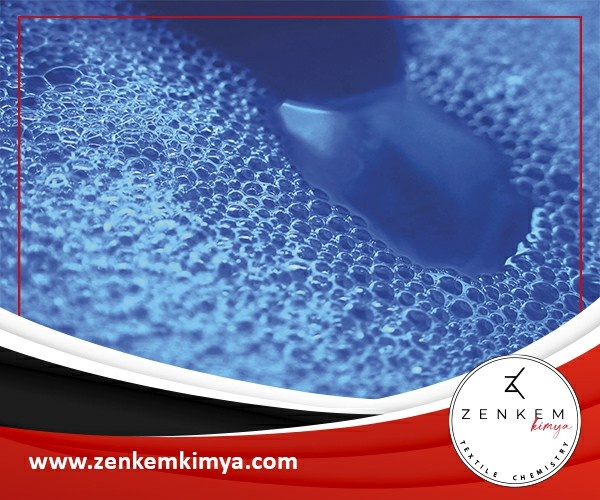How Defoamers Enhance Efficiency in Manufacturing and Production
How Defoamers Enhance Efficiency in Manufacturing and Production
Blog Article
The Duty of Defoamers in Enhancing Product Quality and Efficiency
Defoamers offer as necessary additives that reduce this problem, ensuring smoother manufacturing workflows while enhancing the visual and useful features of the final products. The option of the proper defoamer can be vital to accomplishing ideal outcomes, elevating crucial questions about formulation compatibility and performance metrics that merit more exploration.
Understanding Defoamers
Recognizing the duty of defoamers is essential for keeping item top quality across different sectors. Defoamers are chemical additives created to minimize and prevent the development of foam in fluid systems, which can adversely impact procedures such as blending, filling up, and surface area stress. Lathering can bring about ineffectiveness, item defects, and jeopardized visual allure, making defoamers a vital element in making procedures.
In industrial applications, defoamers help to boost item uniformity and stability. As an example, in the paint and coverings industry, foam can hinder the application procedure and the last coating. In a similar way, in food and beverage production, too much foam can impede bottling and packaging effectiveness (defoamers). The effective use of defoamers not just makes sure smoother manufacturing processes however additionally adds to exceptional product performance.
Moreover, the selection and solution of a defoamer should line up with particular application needs, such as compatibility with various other ingredients, performance under differing temperature and pH problems, and prospective regulative restraints. Inevitably, recognizing defoamers' functions and their significance in different solutions is important for enhancing manufacturing and making certain the finest output.
Sorts Of Defoamers
Defoamers can be categorized into numerous kinds based upon their structure and system of activity. The key types include silicone-based, non-silicone organic, and inorganic defoamers.
Silicone-based defoamers are amongst one of the most reliable, mostly as a result of their capability to spread out promptly on the liquid surface and interrupt foam development. Their unique chemical structure enables premium stability, making them ideal for high-temperature applications and settings with varying pH levels.
Non-silicone organic defoamers, typically made up of natural oils or fats, are valued for their biodegradability and reduced toxicity. These are typically used in food and drink applications where safety and environmental effect are extremely important.
Inorganic defoamers, that include compounds like talc or calcium carbonate, act by enhancing the density of the liquid, consequently decreasing foam security. They are typically made use of in industrial processes where compatibility with various other materials is not a worry.
Each kind of defoamer has distinct benefits and limitations, permitting tailored options depending on the certain foaming concerns encountered in various applications. Understanding these differences is essential for maximizing performance and accomplishing preferred item high quality.
Applications Across Industries
Countless markets utilize defoamers to boost item high quality and operational performance. In the food and drink market, defoamers are crucial in processes such as brewing and dairy products production to stop foam formation, which can bring about inefficiencies and item inconsistency. By controlling foam, manufacturers can make certain better yield and a more uniform product.
In the pharmaceutical sector, defoamers play a crucial role in the formulation of liquid medicines, where excessive foam can hinder mixing more info here and exact dosing. Their usage assists preserve the honesty of the solutions and helps with smoother production procedures.
The paint and finishings industry likewise counts on defoamers to improve the efficiency of items during application. By reducing foam, these ingredients make sure a smoother coating and boost the aesthetic high qualities of the last product.

Benefits of Making Use Of Defoamers
While the application of defoamers varies throughout industries, their advantages continually enhance item high quality and process effectiveness. One substantial advantage is the reduction of foam development during manufacturing processes, which can or else cause production hold-ups and inconsistencies in item top quality. By minimizing foam, defoamers enable a smoother flow of materials, assisting in a lot more efficient procedures and reducing the chance of devices malfunctions.
Furthermore, making use of defoamers can boost the appearance and texture of last items. In markets such as coatings, paints, and food processing, excessive foam can jeopardize the visual aesthetics and total top quality, while the ideal defoamer application ensures a consistent finish and desirable features. Defoamers from this source can add to cost financial savings by reducing waste throughout manufacturing and enhancing the use of raw products.

Selecting the Right Defoamer
Picking the right defoamer is essential for enhancing manufacturing procedures and making sure item high quality. The choice of defoamer affects not just the performance of foam control yet additionally the general efficiency features of the end product. Variables to think about consist of the sort of application, the chemistry of the formula, and the environmental problems under which the item will certainly be utilized.
Various sectors may need details defoamer types, such as silicone-based, organic, or polymeric defoamers. Recognizing the compatibility of the defoamer with the key ingredients is important to stay clear of negative reactions that can compromise product honesty. Furthermore, the defoamer's performance in different temperature levels and pH degrees have to be evaluated to make certain regular efficiency.
Testing the defoamer in small-scale applications can supply valuable understandings into its efficiency and viability. Consideration of governing compliance, specifically in food, drugs, and cosmetics, is paramount in selecting a defoamer. Inevitably, a detailed evaluation of these aspects will certainly lead to the option of a defoamer that not only controls foam successfully but also boosts the quality and performance of the end product.
Verdict

To conclude, defoamers are essential ingredients that substantially boost product quality and efficiency across various sectors. By properly decreasing foam development, these representatives not just improve operational efficiency yet additionally add to the visual and practical honesty of products. The calculated selection and application of defoamers lead to cost financial savings, optimized resource usage, and enhanced consumer fulfillment. On the whole, the relevance of defoamers in industrial processes can not be overemphasized, as they play an important function in accomplishing premium and constant outcomes.
Foaming article can lead to inadequacies, product problems, and compromised aesthetic appeal, making defoamers an essential component in manufacturing operations.

Report this page